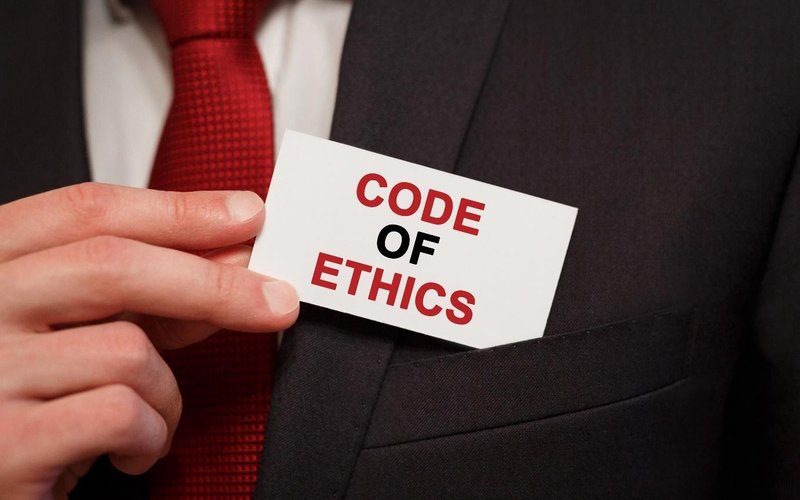
by John McCarthy Consulting Ltd. | Feb 27, 2020 | Blog, News
We have just published an update to the AML Policies Controls & Procedures Manual last week, which is available to purchase now on our website. Our latest February 2020 edition includes the following updated items:
- Pronouncement by the FATF arising from their Public Consultation on FATF Draft Guidance on Digital Identity (discussed at the FATF plenary meeting in Paris from 19-21 February 2020)
- The latest developments on the RBO register since June 2019
- Further guidance on carrying out electronic searches and the validity of sourcing electronic data for client identity purposes.
This Manual contains everything you need to successfully implement the requirements of the Criminal Justice (Money Laundering and Terrorist Financing) Acts, 2010 to 2018 which became law on 26 November 2018 and the Register of Beneficial Ownership which came into effect on 22 June 2019.
This Manual comes with a, free of charge, Excel spreadsheet called the ‘AML Control Sheet’ which firms may use to give a ‘helicopter’ view of progress made with keeping client AML data up to date.
The Manual includes eleven Appendices with templates/guidance on how to implement the legislation efficiently. It retails for only €150+VAT and may be downloaded, ready to use, in Word format.

by John McCarthy Consulting Ltd. | Feb 8, 2020 | Blog, News
As we highlighted last week there is a newly revised and restructured Code of Ethics coming soon for accountants in Ireland, expected to be effective from the 1st of March 2020.
Sometimes accountants realise they have a conflict of interest due to lack of foresight or pre-planning. An example could be trying to sort out a dispute between two clients of the same accountant. The new Code seeks to address this with more guidance.
Conflicts of Interest
The sections on conflicts of interest in the new code have been completely replaced and split into two sections, 210 and 310, covering ‘business’ and ‘public practice’ respectively.
These sections have been revised and the guidance on ‘how to apply the conflicts of interest requirements’ has been enhanced.
The new section maintains the requirement for all parties to be notified of the conflict and obtain their explicit written consent, but also:
- Gives examples of the types of conflict of interest;
- Makes explicit reference to the ‘RITP’ test – the Reasonable and Informed Third Party test (which was only hinted at in the past). The definition of ‘RIPT’:
- The reasonable and informed third party is someone ‘who weighs all the relevant facts and circumstances that the accountant knows, or could reasonably be expected to know, at the time the conclusions are made. The reasonable and informed third party does not need to be an accountant, but would possess the relevant knowledge and experience to understand and evaluate the appropriateness of the accountant’s conclusions in an impartial manner.’ – (from 120.5 A4 in the proposed new Code of Ethics)
- Sections 210/310 also provide additional discussion of matters such as conflict identification processes, safeguards, types of disclosure and consent, and when work can be taken on without disclosure and consent.
A helpful flowchart to aid the decision-making process regarding conflicts of interest is available at this link (courtesy of the ICAEW helpsheet from December 2019).
Watch our website for the forthcoming webinar on the new rules.
See our latest additions to the website store which are the AML Business-Wide Risk Assessment Word template and a webinar on how to prepare it. Both of these help firms comply with the latest requirements of Section 30A of the Criminal Justice (Money Laundering and Terrorist Financing) Acts, 2010 to 2018, effective from 26 November 2018.
For other webinar topics including Investment Property Accounting, FRS 105, Common Errors in FRS 102 Accounting and the latest on FRS 105 and company law, visit our online webinar training website.

by John McCarthy Consulting Ltd. | Feb 4, 2020 | Blog, News
As we highlighted last week there is a newly revised and restructured Code of Ethics coming soon for accountants in Ireland, expected to be effective from the 1st of March 2020.
As readers might know, the Code of Ethics used by accountants across the British Isles is based on the code issued by the International Ethics Standards Board for Accountants – the IESBA code. The format and layout for the new Code of Ethics will look completely different from the previous version. The purpose of this change is to help with the understanding and application of ethical practice.
NOCLAR
The most significant change, however, is the inclusion of ‘NOCLAR’ (Non-Compliance with Law And Regulation), which provides further emphasis on whistleblowing in the ‘public interest’. The term ‘public interest’ is dealt with in 100.1 of the existing Code as follows:
‘Acting in the public interest involves having regard to the legitimate interests of clients, government, financial institutions, employers, employees, investors, the business and financial community and others who rely upon the objectivity and integrity of the accounting profession to support the propriety and orderly functioning of commerce.
This reliance imposes a public interest responsibility on the profession. Professional accountants* shall take into consideration the public interest and reasonable and informed public perception in deciding whether to accept or continue with an engagement or appointment, bearing in mind that the level of the public interest will be greater in larger entities and entities which are in the public eye.’
NOCLAR is dealt with in two brand-new sections 260 and 360, which cover members in ‘business’ and ‘public practice’, respectively.
The Code includes additional guidance material giving members specific permission to breach confidentiality where the accountant considers it to be in the public interest.
The inclusion of NOCLAR in the IESBA Code requires an accountant suspecting a business or client related illegal act to consider whether the act is inconsequential; and if not, they should raise it internally with the client or employer. If the accountant does not consider that the client or employer has dealt with the issue properly, the accountant should make disclosure to the relevant external authority, if it is in the public interest to do so.
The previous version of the Code of Ethics, however, already included specific detail to breach confidentiality in the public interest and so the NOCLAR provisions (new sections 260 and 360) can be seen as a change of detail rather than of substance.
Next week we will look at the second most important change in the Code’s structure, to do with conflicts of interest.
Please see our latest additions to the website store which are the template AML Business-Wide Risk Assessment template and a webinar on how to prepare it. Both of these help firms comply with the latest requirements of Section 30A of the Criminal Justice (Money Laundering and Terrorist Financing) Acts, 2010 to 2018.
For other webinar topics including Investment Property Accounting, FRS 105, Common Errors in FRS 102 Accounting and the latest on FRS 105 and company law, visit our online webinar training website.
Once the webinar viewing is completed, customers will automatically receive a CPD Certificate confirming their learning.

by John McCarthy Consulting Ltd. | Jan 27, 2020 | Blog, News
A reminder of what they are before the new Code of Ethics becomes effective
The nature of accountancy and the complexity of the work that accountants, tax advisers, insolvency practitioners and auditors do, means that this work needs to be trusted, and demonstrate the highest standards of professional conduct.
The Code of Ethics and its obligations are therefore a key part of the accounting profession’s commitment to these standards.
Early this year, Chartered Accountants Ireland (among the other professional bodies that subscribe to the IESBA Code) will be launching a new Code of Ethics. If you want to get a sneak peek at what the new Code will look like, have a look at the UK ICAEW Code here at Code of Ethics, updated from 1 January 2020.
It is not expected that there will be many changes of substance to the Professional Accountancy Bodies Codes of Ethics. One of the primary differences, however, is expected to be the new style of language used in writing the Code. The purpose of this change is to make the new Code easier to navigate and to help with the understanding and application of ethical practice. For example, it will be clearer which parts of the new Code are requirements, and which are guidance.
Before this new Code comes into effect, as a reminder, let’s look at the five fundamental principles (which will remain unchanged) of the existing code. These principles govern all ethical behaviour for accountants in practice and in business and indeed accountancy students:
Fundamental Principles of Ethical Behaviour:
- Integrity – to be straightforward and honest in all professional and business relationships. Integrity also means that members must not knowingly be associated with misleading information.
- Objectivity – not to compromise professional or business judgements because of bias, conflict of interest or undue influence of others. If undertaking an assurance engagement, members must also be and appear to be independent.
- Professional Competence and Due Care – to attain and maintain professional knowledge and skill at the level required to ensure that a client or employing organisation receives competent professional service, based on current technical and professional standards and relevant legislation; and act diligently and in accordance with applicable technical and professional standards.
- Confidentiality – to respect the confidentiality of information acquired as a result of professional and business relationships. Confidential information must not be disclosed outside the organisation without authority, unless there is a duty or right to disclose, or disclosure is in the public interest and permitted by law.
- Professional Behaviour – to comply with relevant laws and regulations and avoid any conduct that the professional accountant knows or should know might discredit the profession.
Please visit our website for 20 webinar topics including Investment Property Accounting, FRS 105, Common Errors in FRS 102 Accounting and the latest on FRS 105 and company law, visit our online webinar training website.
Once viewing is completed, customers will automatically receive a CPD Certificate confirming their learning.

by John McCarthy Consulting Ltd. | Jan 14, 2020 | Blog, News
A question that I often get asked is: how are changes in depreciation policy accounted for?
The follow up question usually asked is whether such changes are accounted for prospectively or retrospectively under FRS 102?
The answer, however, depends on whether the change is a change in ‘estimate’ or a change in accounting ‘policy’.
Change in accounting estimate
Whilst commonly referred to as a ‘depreciation policy’, the depreciation method used is actually an accounting estimate (as detailed in FRS 102 paragraph 17.23).
For example, an entity changing from the reducing balance method to a straight line basis of depreciation, should account for this as a change in accounting estimate, in line with FRS 102 paragraph 10.16, by applying the change prospectively from the date of the change.
Both the useful life and residual value of an asset are accounting estimates. These estimates should be reviewed and updated, where necessary, in accordance with FRS 102 paragraph 17.19. Any amendments to either useful life or residual value are also applied prospectively from the date of change.
Change of accounting policy
When an entity decides to change where a depreciation charge is presented in the accounts, for example, changing its classification from cost of sales to administrative expenses, this would be deemed to be a change of accounting policy (unless, for example, there is a change in circumstance e.g. because of a change in production methods, meaning that the asset is now being used in a different way – in which case the change in presentation would be actioned prospectively from the date of change).
Under FRS 102 paragraph 10.8, this change must result in the financial statements providing reliable and more relevant information about the effects of transactions on the entity’s financial position or performance. When this criteria is met, entities should account for this change in accounting policy retrospectively and therefore the relevant depreciation charge for the prior period should also be reclassified.
If ever in doubt about the applicable rule in the case of your technical question please e-mail us at john@jmcc.ie and we will let you know if there is a charge for your technical question and how long it will take us to generate a reply. Usually technical questions are answered in 48 hours.
For more in technical accounting topics see our online webinars accessible for up to one year from date of purchase. There are 20 topics available and more are added all the time.
Topics include Investment Property Accounting, FRS 105, Common Errors in FRS 102 Accounting and the latest on FRS 105 and company law, visit our online webinar training website. Once viewing is completed, customers will receive a CPD Certificate confirming their learning.
See also our on-demand webinars on AML, accessible at any time and the new requirement for the AML Business Risk Assessment.










